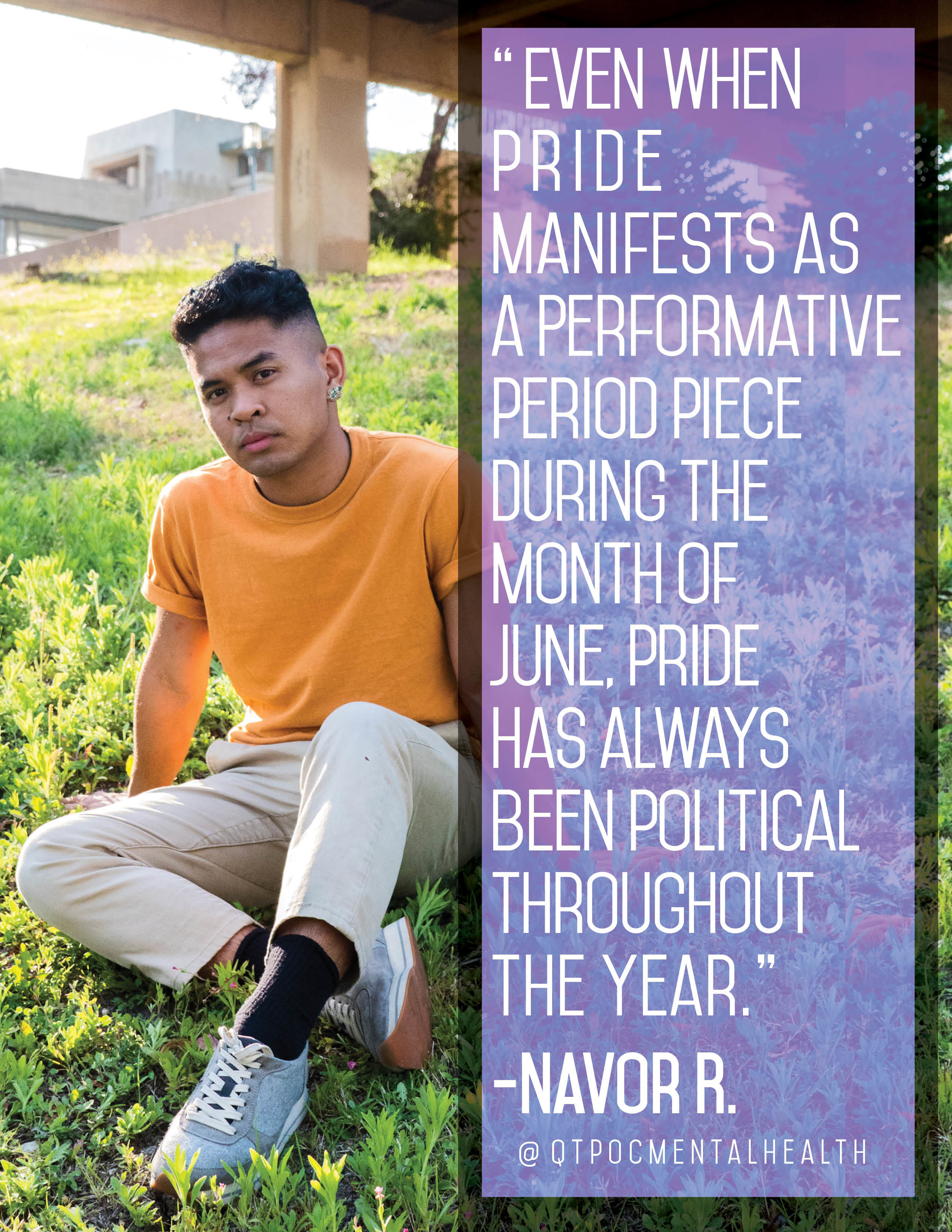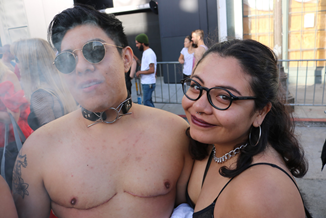Art by Devyn Khaleel Farries
In the wake of author Chimamanda Ngozi Adichie’s recent comments about trans women and her subsequent (failed) social media attempts to clarify herself, I have seen an increasing number of non-Black people chiming in with their two cents about whether Adichie should be allowed to speak publicly (at all—not just on this specific issue) and what consequences she should face for publicly expressing her views.
I have seen comments on Facebook and Twitter from both acquaintances and strangers—many of whom are active within anti-fascist (aka antifa) and decolonial work circles, people by whom I’m simultaneously disappointed and unsurprised—suggesting that Adichie should lose her publishing deal or be otherwise, essentially, no-platformed.
I’ve also seen many comments that the lot of us “civilians” should stop sharing the video of the inciting interview and cease sharing think pieces and critical analyses deconstructing her remarks. Many of said analyses, it should be noted, have been written by Black cis and trans writers.
Apparently, this needs to be stated explicitly: Black women—all Black women—are not expendable.
Adichie and her work are important, and we cannot throw her away simply because she has demonstrated herself to be imperfect and even capable of inflicting harm upon people more marginalised than herself.
Give Credit Where Credit is Due: Colonialism
Adichie's comments about and attitudes toward trans and non-binary/gender variant people are a symptom of imperialism and colonialism. Nigeria has only been an independent nation for 56 years. Her comments are not in and of themselves the root of the problem, nor is Adichie herself the problem.
In fact, Adichie comes from a culture (Igbo) that has a long and rich history of gender variance in multiple forms (including but not limited to: nhayikwa/"male daughters", and ekwe “financially self-sufficient women who were deemed to be possessed by the goddess Idemili and allowed to take wives”). Trans liberation advocates and trans people (in a post-colonial sense) within her Igbo community, I am certain, are already doing the work to remind her of this fact.
Black women are not, and have not historically been, afforded access to inhabiting womanhood with the same, or even remotely comparable, level of humanity that their non-Black counterparts are afforded. And the responses of non-Black people (especially, I've noticed, of those who consider themselves to be antifas) to Adichie's ideological fuck ups are failing miserably to take this into account.
Within our oppressed communities, there are many instances (most, really) in which silencing a person or allowing them to express their views and simply ignoring them instead of challenging or critiquing/deconstructing what they've expressed, allows oppressive attitudes to fester and spread—often with lethal results.
Don’t Dispose of Black Women
I don't care if you are cis, trans, non-binary/gender variant; I'm going to need non-Black people to cease and desist with their calls for Adichie to be silenced and stripped of her public platform.
The ideology and tactics of anti-fascism do not always go hand in hand, and in some cases are in direct conflict, with the approach that is needed in order to move toward decolonisation.
If you hold systemic power (in this case, greater proximity to Whiteness) over a person and are advocating for the no-platforming and discarding of that person because something that they said happens to be problematic, then understand that your anti-fascism is Eurocentric and colonial, and that you are demonstrating that you lack an adequate race analysis within your gender and class politics.
Adichie's feminism has been exclusive from the beginning, appealing predominantly to Western and bourgeois sensibilities, and her latest comments were and continue to be violent, to be sure. There are already plenty of Black trans and gender non-conforming people who have pounced on this issue and are doing the work of collecting her:
Laverne Cox spoke on Twitter about the myth of experiencing male privilege.
Kuchenga Shenjé wrote about how Adichie's comments invalidated her womanhood.
Hari Ziyad of RaceBaitR addressed how Adichie is failing to listen to trans persons about their own lives.
Raquel Willis laid out the many reasons Adichie's views are an intersectional failure.
And Jarune Uwujaren covered why her words are not just wrong, but dangerous.
Simultaneously, there are important intra-community conversations happening amongst the Continental African and larger Black communities that we need to have, and the rest of you calling on us to "stop sharing" content about Adichie's comments and the backlash against her is not only unhelpful, but smacks of anti-Blackness in its implication that non-Black people (non-Black POC, especially) should have a say in how Black people navigate toward our own liberation.
If you were African, then you'd know that we do not easily cast each other out. We understand that the health of our societies depends on the community's ability to hold its members accountable in a way that makes space for each other's individual, predisposed fallibility and capacity for personal growth.
Trans women are women.
Non-binary/gender variant people exist and we are valid.
Black women are not expendable.
Edited by O.A.O
Update 3/19/2017: Removed "when the going gets tough" from "we do not easily cast each other out when the going gets tough." Thanks to the reader who informed us this phrase can be used for gaslighting and manipulative purposes.
We need community support to continue publishing!
Articles and artwork like these are only possible through your contributions. Please donate today to sustain the wellbeing of artists, writers, healers, and LGBTQ2IA+ people of color.
You can also support our team by picking up
a Rest for Resistance print zine.
Image description:
A person with short black hair is holding up a sketch of a person with a red "cancelled" label over the face. They're wearing a black tank top and a loose purple shirt that has sticker featuring the transgender symbol with a Black power fist in the center. The background is composed of down-facing red arrows and multiple question marks.
About Thembani Mdluli:
Thembani Mdluli is an exile-born Southern African & Southeast Asian writer, filmmaker, and media artist; currently based in Toronto, Canada.










